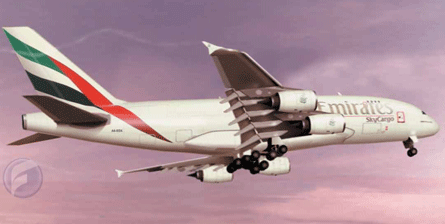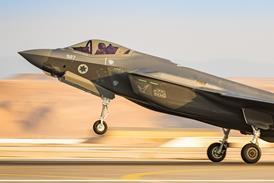Emirates' cargo arm is unlikely to revisit the Airbus A380 Freighter should the programme be revived, as it is unconvinced that the aircraft has enough to offer in the cargo role as now planned, reports Flight International magazine in its 6 November issue.
The Dubai carrier was a launch customer for the A380F in 2001, placing an order for two freighters as part of its original deal for the ultra-large aircraft that included 20 of the passenger variant.
However, in 2006, Emirates was the first A380F customer to drop its order in the wake of delays in Airbus finalising the definition, and later last year placed orders for up to 20 Boeing 747-8Fs. Since then Airbus has lost all the other A380F customers and has deferred the service entry until at least 2014.
 |
|---|
Although Emirates said when it dropped its A380F order that it would "have another look" when the design was completed, Emirates senior vice-president cargo Ram Menen says that the aircraft will not figure in its future plans unless there is "a drastic improvement" in its specification.
In an interview with Flight International ahead of this month's Dubai air show, Menen says: "I like the A380F for its volume, but little else - its numbers have got to change a lot for example, the weight."
Menen says that the airline originally committed to the A380F because it had not expected Boeing to develop a successor to the 747-400F, but that changed in 2005 with the launch of the 747-8F.
"The 747 is a lot more flexible as it can be handled at virtually any airport, whereas the A380's upper-deck loading is a challenge as not many airports will have the equipment to do that."
Emirates has 19 freighters on order - one 747-400ERF, 10 747-8Fs and eight 777Fs. Menen says that the drive to boost the airline's all-cargo fleet is partly due to the fact that it has so many passenger A380s on order.
"The A380 passenger aircraft has reduced belly cargo volume. We are in a transition from freighters being supplemental to our belly cargo capacity to them being the larger contributor to our cargo volume."
Source: FlightGlobal.com























